News

Inspired by a theoretical model of particles moving around on a chessboard, new robot swarm research led by Georgia Tech shows that, as magnetic interactions increase, dispersed “dumb robots” can abruptly gather in large, compact clusters to…

The world's oceans are made up of various "ecoregions," but experts have had trouble connecting them. A new look at existing satellite data by researchers from the School of Earth and Atmospheric Sciences could provide a new way to link those…

Julia Kubanek, professor of biological sciences and chemistry and biochemistry, and associate dean for Research in Georgia Tech’s College of Sciences, has been named vice president for Interdisciplinary Research, effective July 1.
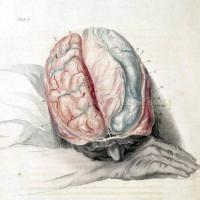
It's one of the most important processes for the development of the human brain, but science is still learning about DNA methylation. A School of Biological Sciences professor and her research team have uncovered some new information about how…

In celebration of Women's History Month, Georgia Tech highlights the onward and upward trajectory of nine women across campus who are shattering the traditional "glass ceiling" — carving a path for others and for equitable recognition, respect,…
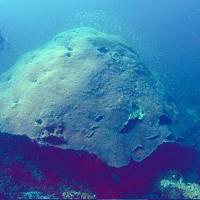
Stony Coral Tissue Loss Disease is ravaging Florida's coral reefs, with 20 out of 45 coral species in the state's waters already infected. School of Chemistry and Biochemistry assistant professor Neha Garg has received an NSF CAREER…
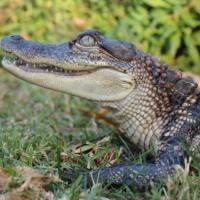
A new study reported by Georgia Tech researchers finds that an alligator heart will not fibrillate when exposed to drastic temperature changes, unlike a rabbit (mammal) heart, which is critically vulnerable to heart trauma under those conditions…

Individually, California blackworms live an unremarkable life eating microorganisms in ponds and serving as tropical fish food for aquarium enthusiasts. But together, tens, hundreds, or thousands of the centimeter-long creatures can collaborate…
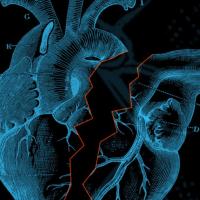
He's a physicist, but Flavio Fenton has long been fascinated by the heart, and the electrical signals that keep it pumping. Fenton recounts how he pivoted from particle physics to researching cardiac rhythms, along the way helping to provide…
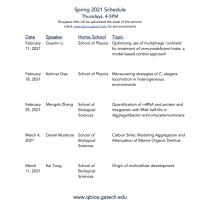
This semester we will be presenting the second annual QBioS Student Seminar series, highlighting the research of one of our 4th year QBioS students each week and providing an opportunity for feedback and discussion. Topics will include…
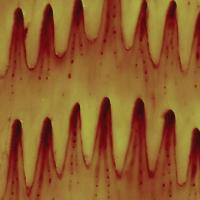
The mesmerizing flow of a sidewinder moving obliquely across desert sands has captivated biologists for centuries and has been variously studied over the years, but questions remained about how the snakes produce their unique motion. Sidewinders…
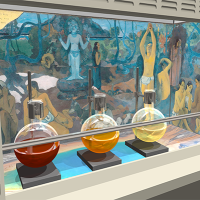
The annual symposium hosted by the Georgia Tech Petit Institute for Bioengineering and Bioscience provided a forum to celebrate the legacy of the NSF/NASA Center for Chemical Evolution, which has been headquartered at Georgia Tech for the past 10…

Colleagues, students, alumni, and friends honor the remarkable life and work of Bridgette A. Barry, a renowned professor of biochemistry and biophysics in the School of Chemistry and Biochemistry, who also a longtime member of the Parker H. Petit…

A new study from School of Psychology researchers shows that color and scenes have a lot to do with how we encode memories, and how we recall them. The study could pave the way for earlier diagnosis of Alzheimer's.
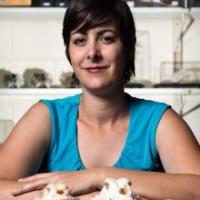
In a recent paper published in PNAS, researchers examine fossil records spanning almost 12,000 years to determine the effects of human activity on where animals live and were surprised by what they found.
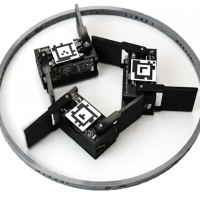
Researchers have proposed a new principle by which active matter systems can spontaneously order, without need for higher level instructions or even programmed interaction among the agents. And they have demonstrated this principle in a variety…

School of Earth and Atmospheric Sciences Associate Professor Chris Reinhard is ending 2020 with two research successes: A grant from NASA that allows him and Georgia Tech to join the agency's new astrobiology initiative, and he's the co-…
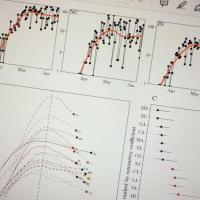
In the midst of the coronavirus pandemic, two human factors are battling it out: awareness of the virus’s severe consequences and fatigue from nine months of pandemic precautions. The results of that battle can be seen in the oddly shaped case,…
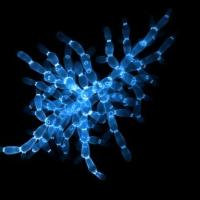
Two Georgia Tech scientists are raising new questions about the development of specialized cells in early multicellular organisms.
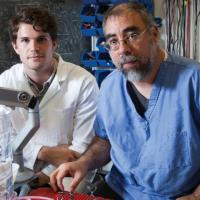
School of Physics professor Flavio Fenton is named to the 25th annual Governor's Teaching Fellows Program, set up to help higher education faculty develop teaching skills. Fenton will work on a classroom-related research project through the…
